- Yokohama-shi Top Page
- Business
- Menu by field
- Environment, parks and sewers
- Global Warming Countermeasures
- Global Warming Countermeasures Plan System
- Yokohama Global Warming Countermeasures Award (FY2020)
Here's the text.
Yokohama Global Warming Countermeasures Award (FY2020)
Yokohama City commends businesses that have made excellent efforts in the Global Warming Countermeasures Plan System.
Last Updated April 5, 2024
Yokohama Global Warming Countermeasures Award
The Yokohama Global Warming Countermeasures Award commends excellent businesses in the Yokohama City Global Warming Countermeasures Plan System.
This time, 319 companies submitted an implementation status report in FY2019. Based on the opinions of experts, 10 companies that have achieved remarkable results, such as significant reductions in greenhouse gas emissions, have been selected as recipients of the Yokohama Global Warming Countermeasures Award.
Winners (titles omitted, alphabetical order)
Efforts of Winners
Olt Yokohama Business Center Residential Association
This is an initiative to reduce electricity and city gas consumption by improving the operation of air conditioning in complex buildings where multiple operators and tenants occupied.
Cogeneration systems for power generation and air conditioning equipment ※In the operation of CGS (CGS), boilers, and cold water generators, CGS has been switched from power generation-oriented operation to operation that emphasizes the use of waste heat, which maximizes efficiency, and has achieved significant energy savings by setting seasonal operation patterns and shortening the operation time of air supply and exhaust fans.
Through the above efforts, we achieved a reduction of approximately 930 tons, or approximately 20% of CO2 emissions per year during the planning period from FY2016 to FY2018 based on FY2015.
In addition, the office is implementing energy-saving measures by external consultants, and is working on various operational measures every year.
※Cogeneration system: Power generation systems that generate electricity and heat from city gas, hydrogen, etc.
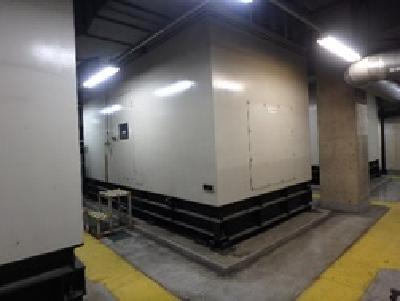 Cogeneration System (CGS)
Cogeneration System (CGS)
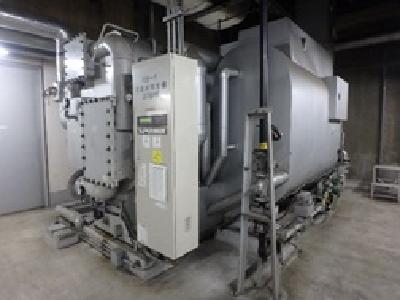 Cold water generators
Cold water generators
JFE Engineering Corporation
This is an effort to reduce electricity, which accounts for less than 60% of the energy usage ratio, and city gas consumption, which accounts for less than 40%, at business sites that manufacture water pipes, shield excavators, etc.
We promoted energy efficiency through the use of LED lighting and floodlights at the Yokohama Headquarters and the replacement of transformers at special high power receiving stations, and the replacement of kerosene-fired boilers and city gas boilers to gas water heaters with high combustion efficiency.
As a result of the above efforts, we have achieved a total reduction of approximately 650 tons, or approximately 9% of CO2 emissions.
In addition, the company is working to reduce daytime power consumption by installing a solar power generation system of 56 kW in its business site and installing a lighting unit on the factory roof.
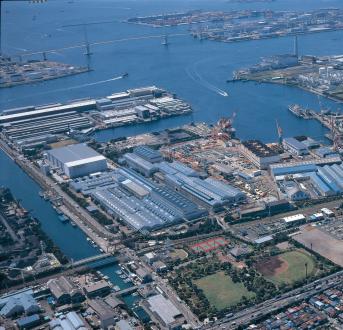 Overview of Tsurumi Plant
Overview of Tsurumi Plant
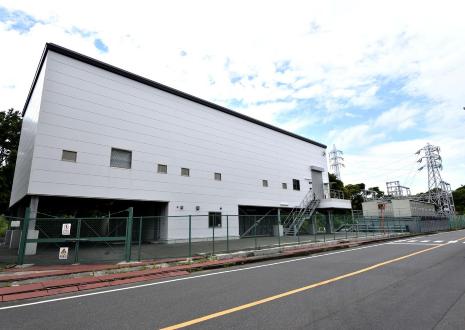 Special High Receiving Station
Special High Receiving Station
Co-op eucorp
This is an effort to improve fuel consumption efficiency in vehicle operation management such as home delivery and welfare services.
Promoted eco-driving, thorough safe driving training, promote the introduction of fuel-efficient and low-emission vehicles, improve efficiency by reviewing regular delivery routes, and promote the use of telematics for vehicles operated in product delivery and home-visit nursing care at city offices.
Through the above initiatives, we improved CO2 emissions per mileage by approximately 22% during the planning period from FY2016 to FY2018 based on FY2015, achieving a reduction in CO2 emissions by approximately 50 tons per year.
In addition, in store management, the association has promoted the improvement of operation by energy-saving consultants and the use of LED lighting to reduce CO2 emissions by approximately 670 tons per year, as well as the basic environmental policy to promote the handling and dissemination of environmentally friendly products and the reduction of waste.
Low-emission vehicles (electric vehicles)
LED lighting
Sogo Dept. Store (Shin-Toshi Hall) Seibu Co., Ltd.
This is an initiative to use LED lighting equipment, which is a major energy-use facility in stores.
At the Sogo Dept. Store (Shin-Toshi Hall) Yokohama store, approximately 4,300 existing fluorescent lamp equipment were converted to LEDs.
In implementing the initiative, lighting is a facility directly connected to the image of the store, so we examined illuminance, color temperature, arrangement, etc. for each product area and promoted lighting design to realize energy saving while improving the image of the store.
Through the above initiatives, we achieved a total reduction of approximately 510 tons of CO2 emissions in fiscal 2018.
In addition, the company has been promoting the use of LED lighting equipment at city stores other than the Yokohama store since FY2015, and is working to systematically save energy.
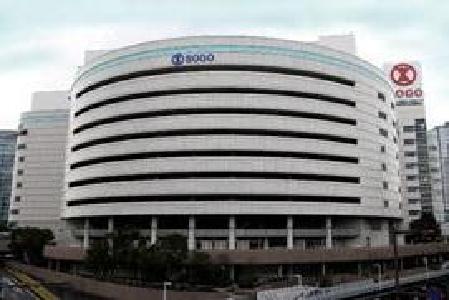 Store exterior
Store exterior
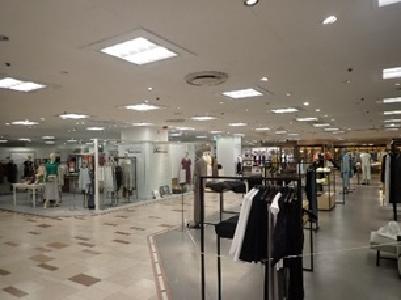 LED lighting
LED lighting
Toagosei Co., Ltd.
This is an initiative to reduce electricity consumption, which accounts for less than 90% of energy consumption at business sites that produce key chemicals such as caseisoda and sodium hypochlorite.
In fiscal 2017, we were able to reduce CO2 emissions by approximately 560 tons by replacing electrolysis tanks for electrolysis of salt, which account for approximately 85% of the electricity consumption at the Yokohama Plant.
In addition, the Energy Conservation Committee organized a PDCA cycle based on energy consumption and intensity as indicators, and achieved a reduction of 3.6% in the final year despite an increase in production volume during the fiscal year 2016-2018 based on fiscal 2015.
As a result of these efforts, this will be the second Yokohama Global Warming Countermeasures Award following 2017.
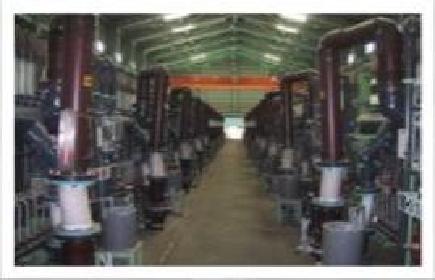 Electrolytic tank
Electrolytic tank
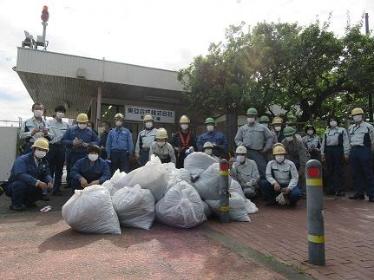 CSR Activities
CSR Activities
Nichirei Logistics Kanto Ltd.
This is an initiative aimed at lighting and refrigeration equipment at offices that are responsible for storing and sorting frozen foods.
The entire Group worked together to update LED lighting for high-power consumption, such as lighting with heaters and mercury lamps, in offices, warehouses, and outside lights, in accordance with conservation's policy.
Through these initiatives, we have achieved a total reduction of approximately 500 tons, or about 20% of CO2 emissions.
In addition, we promoted the renewal of refrigerators and the review of operation control of refrigerators, and achieved a reduction in CO2 emissions of approximately 570 tons during the planning period from FY2016 to FY2018 based on FY2015.
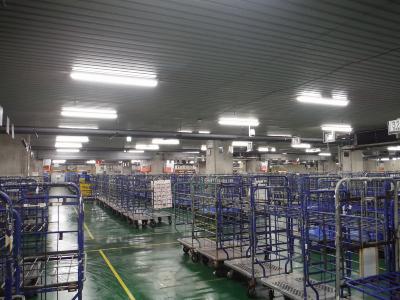 LED lighting
LED lighting
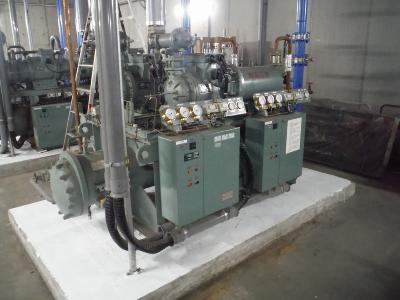 Refrigerators
Refrigerators
JGC Holdings, Inc.
This is an initiative for lighting and air conditioning equipment at Minato Mirai Queens Tower A, which is co-owned by the company.
We used LED lighting fixtures in our business sites, updated cold water booster pumps for air conditioning, updated compact air conditioning, updated water circulation pumps for hot water supply, automatic flashing of water lighting fixtures, and changed the operation of each air conditioner.
Through the above efforts, we achieved a reduction of approximately 1,800 tons per year, or approximately 26%, during the planning period from FY2016 to FY2018 based on FY2015.
The JGC Group has established a basic environmental policy for the realization of a harmonious environment and low-carbon society, and is promoting various environmental improvement activities through its business activities. As one of these activities, we are working on systematic renewal and operation improvement of equipment every year, and have won the Yokohama Global Warming Countermeasures Award for the second consecutive year following 2019.
Cooled water booster pump for air conditioning
Cooled water booster pumps for air conditioning
Mizuho Bank, Ltd.
This is an initiative to reduce the energy consumption of air conditioning and lighting at bank stores.
We promoted the use of LED lighting at existing stores, the introduction of highly efficient equipment for air conditioning, and the introduction of environmentally friendly equipment by improving operational efficiency.
Every fiscal year, the Bank checks the operating status of all stores and centrally manages the degree of deterioration of each facility, and uses this management record to prioritize renewals and promote efficient and economical renewal of equipment.
Through the above efforts, we achieved a reduction of approximately 1,200 tons per year, or approximately 25%, during the planning period from FY2016 to FY2018 based on FY2015.
In addition, we are working to raise employees' awareness of energy conservation by summarizing the energy consumption of each store every month and disseminating the actual usage and reduction status.
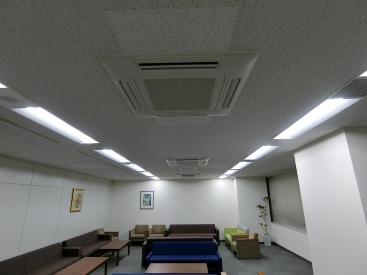 LED lighting, high-efficiency air conditioning
LED lighting, high-efficiency air conditioning
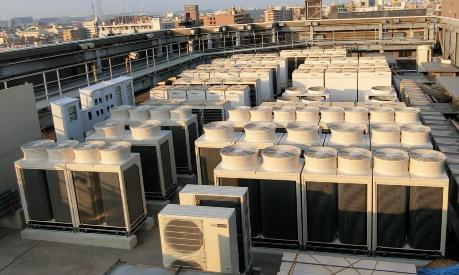 High-efficiency air conditioning outdoor unit
High-efficiency air conditioning outdoor unit
Mitsubishi Estate Co., Ltd.
This is an initiative aimed at lighting and air conditioning equipment in Landmark Plaza Shopping Center and Queens Parking, which are large complex buildings with various tenants.
In fiscal 2018, LED lighting was installed on five floors, achieving a reduction of approximately 680 tons of CO2 emissions. In fiscal 2015-2018, we planned to upgrade air conditioning to high-efficiency motors, upgrade pumps for cold and water circulation, inverter control operation, and switch to LED lighting, and achieved a total reduction of approximately 2,100 tons, or approximately 8% of CO2 emissions.
In addition, the company is actively engaged in environmental conservation, including sponsoring the Yokohama Wind Power Generation Project, with consideration for the global environment as one of its management priorities.
Landmark Plaza Shopping Center
Compact air conditioner
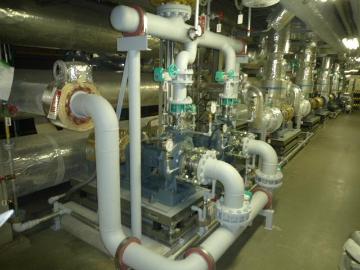
Cold water pump
Musashino Co., Ltd.
This is an initiative aimed at lighting and air conditioning equipment at factories that manufacture lunch boxes and rice balls for convenience store chain stores.
In total, we reduced CO2 emissions by approximately 710 tons or approximately 13% by switching approximately 1,200 lighting equipment in the factory to LED, updating aging air conditioning, automatic control by turning air supply and exhaust fans into inverters, and updating to a hybrid hot water supply system that utilizes heat pumps from hot water boilers.
In addition, by utilizing the national subsidy system for these equipment renewals, we quantitatively calculate the effect of investment before and after the renewal and promote it systematically.
The company is Eco Action 21 ※We are promoting systematic environmental improvement activities.
※Eco Action 21: Japan's own environmental management system (EMS) formulated by the Ministry of the Environment. Based on a method of continuously improving performance called the "PDCA cycle", a method for businesses and others to voluntarily engage in environmental initiatives is defined.
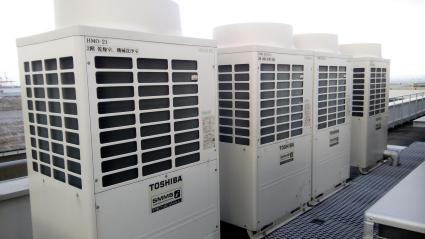 Updated air conditioner
Updated air conditioner
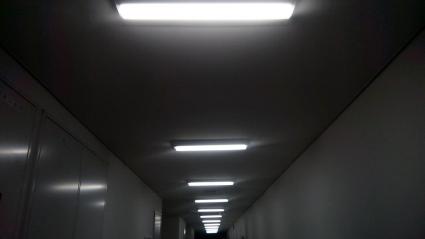 LED lighting
LED lighting
Public Relations and Press
You may need a separate PDF reader to open a PDF file.
If you do not have it, you can download it free of charge from Adobe.
![]() To download Adobe Acrobat Reader DC
To download Adobe Acrobat Reader DC
Inquiries to this page
Decarbonization / GREEN × EXPO Promotion Bureau Decarbonization Plan Promotion Section Planning System
Telephone: 045-671-4224
Telephone: 045-671-4224
Fax: 045-663-5110
Email address: da-keikakusho@city.yokohama.lg.jp
Page ID: 695-914-903







